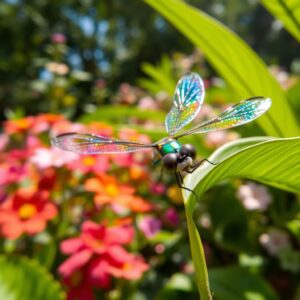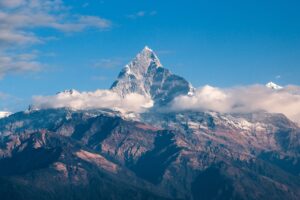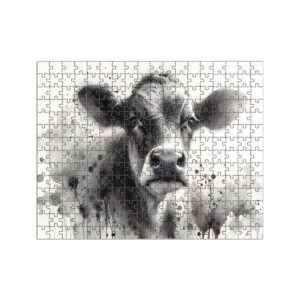
Explore & Play
Discover interesting topics and solve the accompanying crossword puzzle.
Animal Crossword | Fascinating Wildlife
Table of Contents
Welcome to our guide on Earth’s most fascinating animals! To make your reading experience even more engaging, we invite you to start with our Animal crossword puzzle. This fun challenge will test your knowledge of various wildlife and enhance your understanding as you read the article. If you’re new to the topic or want to learn more about these incredible creatures, feel free to read the article first and then return to tackle the Animal crossword. Enjoy your journey through the diverse world of animals!
Animal Crossword
You can either fill in the crossword puzzle directly on this page or click the button in the bottom right corner to print it for free.

From the Savanna to the Sea: Earth's Most Interesting Animals
Welcome to a journey through some of the most captivating animals on our planet, from the vast savannas of Africa to the mysterious depths of the sea. In this guide, we’ll explore a diverse range of species and their unique adaptations. As you delve into the world of these fascinating creatures, challenge yourself with our related animal crossword puzzle!
1. Savanna Marvels
The savanna, with its wide-open spaces and diverse ecosystem, is home to some of the most iconic animals on earth. These animals have evolved unique adaptations to thrive in this distinctive environment.
1.1. The Majestic Giraffe
Known for its towering height and long neck, the giraffe is a symbol of the savanna’s unique wildlife. This extraordinary adaptation allows the giraffe to reach leaves high up in the trees, making it an efficient browser in the open grasslands. With its long legs and neck, the giraffe can spot predators from afar and navigate the savanna with ease.
1.2. The Striped Zebra
With its distinctive black and white stripes, the zebra is a striking sight against the golden grasslands. These stripes are believed to help zebras camouflage, confuse predators, and regulate their body temperature. Zebras are highly social animals, living in large herds that provide protection and strengthen social bonds.
1.3. The Swift Cheetah
The cheetah, famed for its incredible speed, is the fastest land animal and a master of high-speed chases. Its aerodynamic body, large nasal passages, and specialized muscles allow it to reach speeds of up to 70 miles per hour in short bursts. This speed is crucial for catching fast prey, such as gazelles, in the open savanna.
1.4. The King of Beasts: Lion
Often referred to as the “king of the savanna,” the lion commands respect with its powerful presence and social structure. Lions are unique among big cats for their social behavior, living in prides that include related females, their cubs, and a few adult males. This social structure helps them hunt cooperatively and defend their territory.
2. Desert Dwellers
The harsh desert environment demands unique adaptations from its inhabitants, allowing them to thrive under extreme conditions.
2.1. The Resilient Camel
The camel, with its iconic hump, is perfectly adapted to desert life, providing sustenance and hydration for long journeys. Contrary to popular belief, the hump stores fat, not water, which can be converted into energy and water when food is scarce. Camels are also equipped with specialized nostrils and thick eyelids to protect against sandstorms.
3. Forest and Jungle Residents
Forests and jungles offer rich, diverse habitats that support a wide variety of fascinating creatures.
3.1. The Gentle Gorilla
Gorillas, the largest of the primates, are gentle giants of the forest, known for their social bonds and peaceful demeanor. They live in tight-knit family groups led by a dominant silverback male, who provides protection and leadership. Gorillas primarily feed on vegetation and play an important role in their ecosystem as seed dispersers.
3.2. The Elusive Leopard
The leopard, with its beautiful rosette-patterned coat, is a master of stealth and adaptability in the dense jungle. Its camouflage allows it to blend into the foliage while stalking prey or resting. Leopards are solitary hunters, relying on their agility and strength to ambush and overpower their prey.
3.3. The Curious Sloth
Slow-moving and endearing, the sloth is a unique inhabitant of the tropical forests, spending most of its life in the treetops. Its slow metabolism and specialized limbs help it move slowly and conserve energy. Sloths are also known for their algae-covered fur, which provides additional camouflage and sustenance.
3.4. The Crafty Raccoon
Known for its dexterous paws and inquisitive nature, the raccoon is a common yet intriguing forest dweller. Raccoons are highly adaptable omnivores, capable of manipulating objects and solving problems to find food. Their adaptability has allowed them to thrive in a variety of environments, from forests to urban areas.
4. Aquatic Wonders
The world’s oceans and waterways are home to an astonishing variety of marine life, each with its own adaptations for survival.
4.1. The Playful Dolphin
Dolphins, celebrated for their intelligence and playful behavior, are among the most beloved marine mammals. They use complex vocalizations and social interactions to communicate within pods. Dolphins are also known for their acrobatic displays and cooperative hunting techniques.
4.2. The Enormous Whale
Whales, the giants of the ocean, captivate with their immense size and gentle nature, making them a key feature of marine ecosystems. These majestic creatures, such as the blue whale, are filter feeders that consume massive amounts of krill and small fish. Their presence plays a crucial role in maintaining the health of ocean ecosystems.
4.3. The Mysterious Octopus
With its eight arms and remarkable problem-solving abilities, the octopus is one of the most enigmatic creatures of the sea. Octopuses possess advanced camouflage skills, allowing them to blend seamlessly into their surroundings. They are also known for their intelligence, using tools and escaping from enclosures.
4.4. The Charming Seal
Seals, with their playful antics and sleek bodies, are well-adapted to life in the water and often seen frolicking along coastlines. Their streamlined bodies and strong flippers enable them to swim efficiently and catch fish. Seals are also known for their vocalizations and social interactions within colonies.
4.5. The Elegant Jellyfish
Jellyfish, with their ethereal appearance and stinging tentacles, drift gracefully through the ocean’s currents. Their gelatinous bodies and tentacles allow them to capture prey and defend against predators. Jellyfish play a role in marine ecosystems as both predators and prey.
4.6. The Endearing Manatee
Often referred to as sea cows, manatees are gentle giants of the aquatic world, known for their slow-moving nature and herbivorous diet. They graze on seagrass and aquatic vegetation, contributing to the health of their habitats. Manatees are also known for their docile behavior and friendly interactions with humans.
5. Unique and Adapted Creatures
Beyond the more familiar animals, there are numerous unique species with special adaptations that make them stand out.
5.1. The Odd Platypus
The platypus, an egg-laying mammal with a duck-like bill, is one of the most unusual creatures in the animal kingdom. This monotreme is native to Australia and has a unique combination of features, including the ability to produce venom and detect electrical signals in the water.
5.2. The Robust Wombat
Wombats, native to Australia, are robust burrowers with a distinctive, cube-shaped droppings. Their strong limbs and claws are adapted for digging complex burrow systems. Wombats are solitary creatures, known for their territorial behavior and nocturnal activity.
5.3. The Colorful Parrot
Parrots, known for their vibrant plumage and mimicking abilities, bring a splash of color and personality to their habitats. They are highly intelligent birds that use vocalizations to communicate and interact socially. Parrots play an important role in their ecosystems by dispersing seeds and pollinating plants.
6. The Night and Sky
Some animals are best appreciated for their unique traits that become most evident during specific times or in their special environments.
6.1. The Agile Bat
Bats, with their nocturnal habits and echolocation skills, navigate the night skies with remarkable precision. They use echolocation to detect insects and navigate through the dark. Bats are crucial for controlling insect populations and pollinating plants.
6.2. The Wise Owl
Owls, recognized for their distinctive hoots and nocturnal lifestyle, are symbols of wisdom in many cultures. Their silent flight and keen hearing allow them to hunt effectively in low light. Owls play an important role in controlling rodent populations and maintaining ecosystem balance.
6.3. The Graceful Swan
Swans, known for their elegant necks and serene presence, glide across water with unmatched grace. Their long necks and powerful wings make them proficient swimmers and fliers. Swans are often seen as symbols of beauty and tranquility in various cultures.
7. From Ponds to Fields
Animals can be found in a wide range of environments, each with its own set of challenges and adaptations.
7.1. The Dainty Duck
Ducks, with their distinctive quacks and webbed feet, are a common sight in ponds and wetlands around the world. Their webbed feet and buoyant bodies make them excellent swimmers. Ducks are also known for their migratory behavior and diverse feeding habits.
7.2. The Nimble Frog
Frogs, with their powerful legs and ability to live both in water and on land, are versatile residents of various habitats. Their jumping ability and vocalizations are key aspects of their behavior. Frogs play a role in controlling insect populations and serving as prey for larger animals.
8. The Small and Mighty
Even the smallest animals have fascinating features and play important roles in their ecosystems.
8.1. The Clever Mongoose
Mongooses, small yet fierce, are known for their agility and ability to combat venomous snakes. Their quick reflexes and social behavior make them effective predators and defenders. Mongooses play an important role in their ecosystems by controlling snake populations.
8.2. The Resourceful Squirrel
Squirrels, with their bushy tails and knack for storing food, are common and adaptable residents of many environments. Their ability to cache food and navigate trees makes them well-adapted to various habitats. Squirrels are also known for their role in seed dispersal and forest regeneration.
Discover the Diverse World of Animals!
From the savanna to the sea, our planet is home to a mesmerizing array of wildlife, each with its own unique adaptations and behaviors. As you explore these remarkable creatures, don’t forget to test your knowledge with our animal-themed crossword puzzle! Dive into the crossword challenge and see how many of these incredible animals you can identify.
Share to...
I hope you enjoy the content.
Want to receive our daily crossword puzzle or article? Subscribe!
You may also be interested in
Share to…
Want to receive our daily crossword puzzle?
-
Jigsaw Puzzles
Flåm Railway Abstract Art Jigsaw Puzzle 250 | 300 | 500 Pieces
kr 348,00 – kr 439,00Price range: kr 348,00 through kr 439,00 Select options This product has multiple variants. The options may be chosen on the product page -
Jigsaw Puzzles
Enchanting Four Sheep Zodiac Jigsaw Puzzle 250 | 300 | 500 Pieces
kr 348,00 – kr 439,00Price range: kr 348,00 through kr 439,00 Select options This product has multiple variants. The options may be chosen on the product page -
Jigsaw Puzzles
Twelve Zodiac Cow Ink Wash Jigsaw Puzzle 250 | 300 | 500 Pieces
kr 348,00 – kr 439,00Price range: kr 348,00 through kr 439,00 Select options This product has multiple variants. The options may be chosen on the product page

















